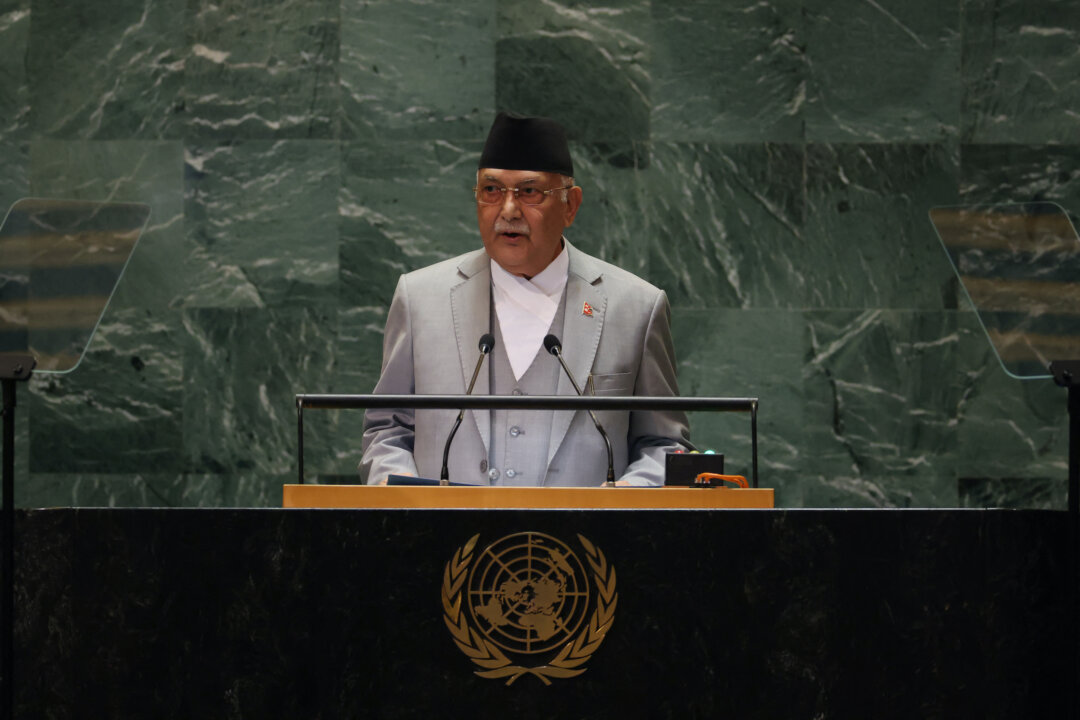The Nepali leader said his visit aims to strengthen ‘bilateral friendship’ with China.
Nepali Prime Minister K.P. Sharma Oli on Monday ruled out signing any loan agreement under the Chinese regime’s Belt and Road Initiative (BRI) during his upcoming official visit to China next month.
Oli is scheduled to visit China on Dec. 2, his first bilateral visit since taking office in July. This move is seen as a departure from the traditional practice of newly elected Nepali prime ministers visiting India as their first official trip.
During a meeting with coalition leaders on Monday, Oli denied allegations of a dispute between the ruling parties about whether Nepal should seek loans or grants from the Chinese Communist Party (CCP) under the BRI.
“We can take loan[s] or grants based on our national interest and our needs with any country or international agency but we shouldn’t [be] swayed by the baseless rumors such as we are taking loans that would put us on a debt trap,” he was quoted as saying by The Kathmandu Post.
“Safeguarding our sovereignty, independence and national interests are our topmost priorities no matter whichever country we visit first.”
Oli said he aims to strengthen “bilateral friendship” with China through the visit. According to the report, he intends to discuss the implementation of their previous agreements, the expansion of transmission lines, and the exportation of Nepali goods to China.
Oli emphasized that Nepal maintains the same friendly relations with India and that his visit should not be perceived as a move against any country.
“No one should take such matters as a ‘card’ against any country as the official visit of the head of the government will be based on the needs and decisions of the country,” he stated.
Oli was reelected this year as Nepal’s prime minister for the fourth time. Still, months after his inauguration in July, the Indian government had not extended any invitation for a bilateral visit, according to local reports.
In his congratulatory message to Oli on July 15, Indian Prime Minister Narendra Modi expressed his desire to strengthen “the deep bonds of friendship” between their countries and expand bilateral cooperation, according to a statement.
Nepal signed the framework agreement on the BRI, a multi-billion-dollar infrastructure project led by China, in May 2017. Nepal had initially listed 35 projects to be covered under the BRI, but China later requested that Nepal reduce the list, resulting in nine confirmed projects, according to reports.
Launched by Chinese leader Xi Jinping in 2013, the BRI reached its peak in 2015 when it expanded the CCP’s influence through global trade links and the construction of railways, ports, highways, and other infrastructure projects.
Critics of the BRI have dubbed the project a form of “debt-trap diplomacy” that saddles developing nations with unsustainable debt levels, leaving them vulnerable to ceding strategic infrastructure and resources to Beijing. For instance, in 2017, Sri Lanka leased its Hambantota port to China for 99 years to convert its Chinese loan into equity.
Eva Fu contributed to this report.

